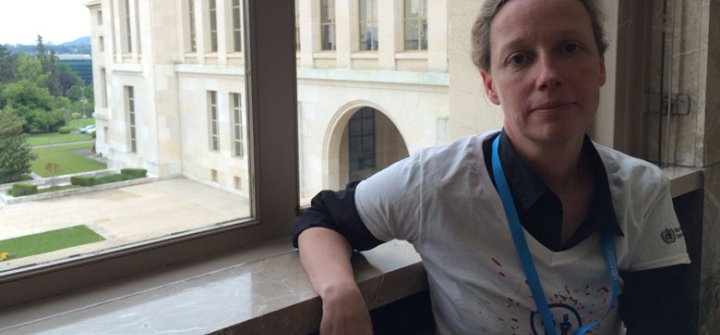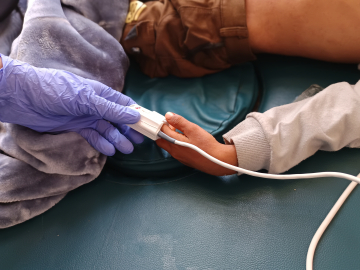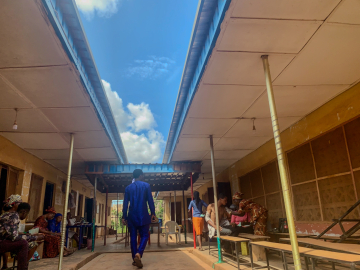The Attacks on Health Care
By Brian W. Simpson
GENEVA – Last year in October, Haydan hospital in Yemen was destroyed by Saudi-led coalition airstrikes, and within a couple hours 200,000 people lost access to health care. Just 3 weeks earlier, the Kunduz trauma center was hit by U.S. airstrikes and 1 million people lost access to high-quality surgical care. 42 people died in Kunduz.
Haydan and Kunduz were just two examples of looting, bombing and shelling directed at hospitals or clinic as well as attacks on health workers and patients. There were 122 attacks on health facilities in Syria alone in 2015 and 100 in Yemen, according to the Safeguarding Health in Conflict Coalition, which released a report on Monday—the first day of this year’s World Health Assembly.
And on Thursday, WHO released its own report that found 594 reported attacks on health care that resulted in 959 deaths and 1561 injuries in 19 countries in a 2-year period ending in December 2015. 62% of the attacks were reported to have “intentionally targeted health care,” according to WHO.
“You are looking at a reality that one of the ways in which wars that are being waged is really war against civilians whereby the targeting of health services is part of a broader trend against all services—schools, houses of worship, markets…” said Marine Buissonniere, a senior coordinator for Médecins Sans Frontières.
“Because hospitals in conflict [zones] are really places of humanity in the midst of violence, it is not by mistake they are being targeted. It is about depriving people of a sense of hope,” she said.
It also provides deprives them of access to care. “You also are looking at the shutting down of health services, both emergency and routine. Where do pregnant women go? Where does a child with pneumonia go?” Buissonniere said, adding that MSF has documented 94 shelling and bombing attacks on 63 hospitals and clinics that it supports in the past 18 months in Syria alone.
This week’s World Health Assembly had considerable discussions about the global health workforce, resilient health systems and universal health coverage, Buissonniere noted. “None of this will be advanced if states do not protect the medical providers of services,” she said. “It takes decades to build a doctor, and it takes seconds to kill one.”
Much more clearly needs to be done to protect health workers, said Len Rubenstein, director of the program on Human Rights and Health in Conflict at the Center for Public Health and Human Rights at the Johns Hopkins Bloomberg School of Public Health. MSF, SHCC and others have made some progress in persuading the international community to recognize the importance of the issue.
“Five years ago … WHO was not only not engaged but it actively resisted engagement on this issue. There was a reluctance to criticize member states and [there were] issues around priorities as well,” Rubenstein said.
The challenge now is accountability, he said. State and nonstate actors can target health facilities and health workers without fear of consequences. “The only way to get there is to put enough political pressure on perpetrators on the one hand and on the other governments to exert their own political will to make it a higher priority.”
Buissonniere agreed: “There needs to be a political price for bombing a hospital, and it need to be more than 24 hours of bad press. There needs to be citizens outraged when health structures are being destroyed and doctors killed. There needs to be accountability for attacks on medical missions along the lines what the UN Security Council resolution sets out.”
While the resolutions and political will are building, Buissonniere says her concern with the local health workers who continue to help others in conflict zones—at great risk to themselves.
“Ultimately it is not about MSF. MSF may get the press but the national health workers who stay and do the work are the ones who bear the brunt.”
It’s up to the global community to act, she said. “We are all going to need health care services someday. We are all patients at some point in our lives,” she said. “I cannot not have hope.”
Brian W. Simpson, Global Health NOW editor-in-chief, is reporting from Geneva this week at the World Health Assembly. Visit this page for more GHN stories from the 69th World Health Assembly.
Join the thousands of subscribers who rely on Global Health NOW summaries and exclusive articles for the latest public health news. Sign up for our free weekday enewsletter, and please share the link with friends and colleagues: Subscribe to GHN
Marine Buissonniere, a senior coordinator for Médecins Sans Frontières.





